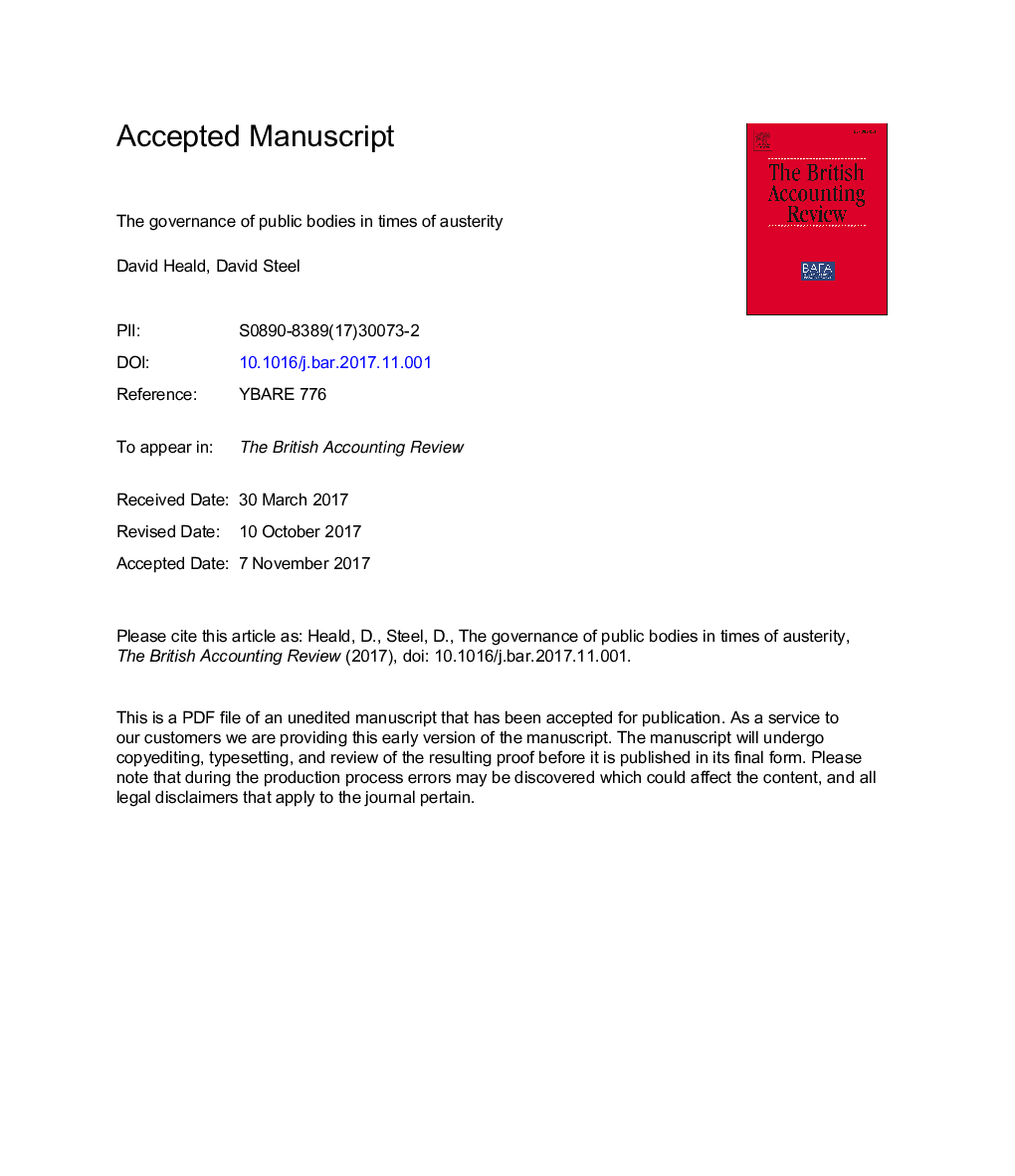| Article ID | Journal | Published Year | Pages | File Type |
|---|---|---|---|---|
| 7414575 | The British Accounting Review | 2018 | 33 Pages |
Abstract
Private sector governance arrangements have been imported into UK public bodies under the influence of New Public Management reforms. This paper draws on a cohort study of 14 public bodies to assess the appropriateness of this practice and the impact of fiscal austerity during the study period of 2010-16. Based on multiple sources, including interviews with Chairs and Chief Executives, it shows that, though similar to private corporate Boards in appearance, public Boards are often excluded from the strategy role. They are also vulnerable to the elastic definition of policy over which Ministers assert dominance, thereby blurring accountability. It demonstrates the tension between vertical accountability to government principals and horizontal accountability to stakeholders. During the study window, public bodies were abolished, broken up, merged, reconfigured or taken back into core government, as the UK Government imposed austerity measures to reduce the size of the fiscal deficit and to diminish government roles in delivery, financing and regulation of public services. Surviving public bodies in the study suffered deep budget cuts and less autonomy from central control. These findings are interpreted as evidence of the re-territorialisation of the UK public sector, with accruals accounting and accounting consolidation practices playing a facilitating role.
Related Topics
Social Sciences and Humanities
Business, Management and Accounting
Accounting
Authors
David Heald, David Steel,
